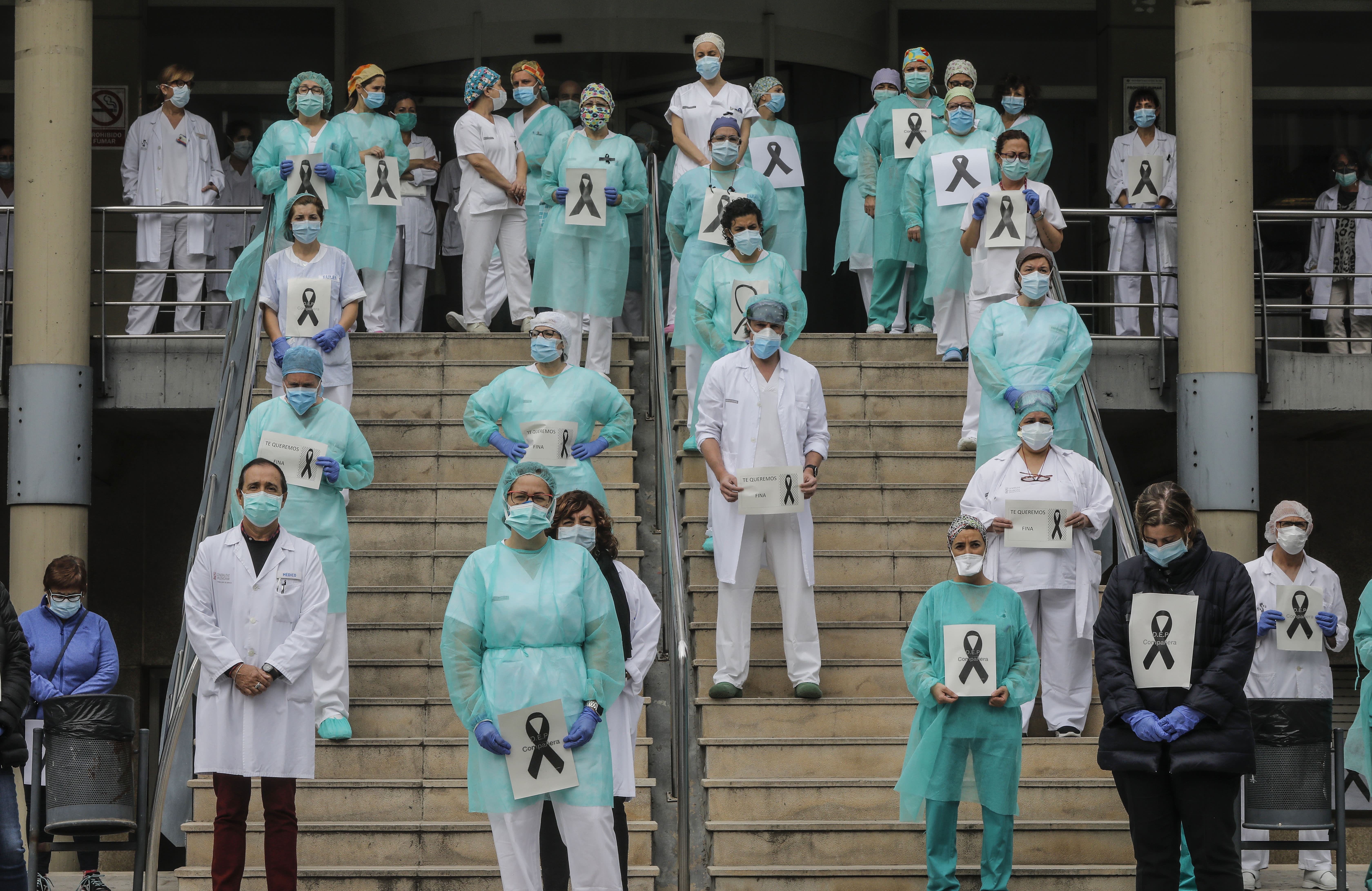Health workers wear protective masks as they observe a minute’s silence at the entrance of the Hospital Doctor Peset in remembrance of nursing staff who have died due to coronavirus (COVID-19) on April 06, 2020 in Valencia, Spain.
Rober Solsona | Europa Press News | Getty Images
The World Health Organization is urging countries to create at least 6 million new nursing jobs by 2030 to offset a projected “global shortfall” as health-care workers across the world respond to the COVID-19 pandemic.
Nursing is the largest occupational group in the health-care sector, accounting for roughly 59% of health professions, WHO says. There are just under 28 million nurses worldwide, about 5.9 million short of what the world needs to adequately care for the growing population, according to a new report published Monday from WHO, the International Council of Nurses and Nursing Now.
The greatest deficit of nurses is in low- to low-middle income countries in Africa, Southeast Asia, the Eastern Mediterranean region and some parts of Latin America, according to the report, which looked at 191 countries using data between 2013 and 2018.
More than 80% of the world’s nurses work in countries that account for half of the world’s population, according to the report’s findings.
“Nurses are the backbone of the health system,” WHO Director-General Tedros Adhanom Ghebreyesus said in a statement. “Today, many nurses find themselves on the frontline in the battle against COVID-19. This report is a stark reminder of the unique role they play, and a wakeup call to ensure they get the support they need to keep the world healthy.”
The coronavirus, which emerged in China a little over 3 months ago, has spread to almost every country, infecting more than 1.3 million people worldwide and killing at least 72,700 as of Monday afternoon, according to data compiled by Johns Hopkins University.
More than 350,000 of those cases are in the United States, where doctors, nurses and other health-care workers scramble to take care of the sick as hospitals reach capacity and essential medical supplies run short. Dozens of nurses and other health-care workers protested outside a New York hospital on Monday for better protective gear.
On Friday, New York City Mayor Bill de Blasio called for a “national enlistment of medical personnel” in the city as local officials prepare for a crush of coronavirus patients expected over the next few weeks.
WHO recommended that countries experiencing nursing shortages should increase the number of nurse graduates by about 8% each year and improve the availability of jobs.
“Politicians understand the cost of educating and maintaining a professional nursing workforce, but only now are many of them recognizing their true value,” ICN President Annette Kennedy said in a statement. “Every penny invested in nursing raises the well being of people and families in tangible ways that are clear for everyone to see.”
WHO also recommended that world leaders educate nurses in the scientific, technological and sociological skills they need to drive progress in health care as well as improving working conditions.
WHO officials said leaders should also strengthen the role of nurses in care teams, noting about 90% of nurses are female, but few nurses or women hold leadership positions.
